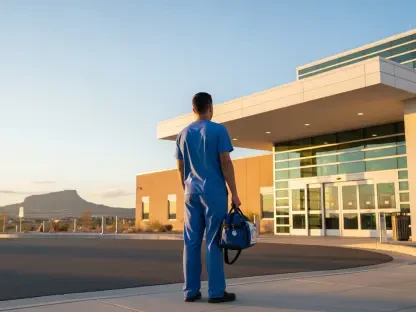In a state already grappling with economic and health challenges, a staggering 70,000 West Virginians stand on the brink of losing their health insurance as enhanced premium tax credits under the Affordable Care Act (ACA) are set to expire by year’s end. These credits, vital for making healthcare affordable, have been a lifeline for many since their expansion during the pandemic, easing the burden of premium costs for families and individuals alike. Without urgent intervention from state and federal leaders, the loss of this financial support threatens to plunge thousands into medical and economic hardship, unraveling years of progress in healthcare access. The ripple effects could strain not only personal budgets but also the broader healthcare system, particularly in rural areas where resources are already scarce. This looming crisis demands immediate attention, as the clock ticks down to a deadline that could reshape the state’s health landscape.
Personal Impacts of Losing Coverage
Families Facing Financial Strain
The expiration of enhanced ACA premium tax credits could spell disaster for countless West Virginia families who rely on this support to afford health insurance. Ellen Allen, executive director of West Virginians for Affordable Health Care, paints a stark picture with the example of a family of four earning around $130,000 annually. With the credits, their premiums hover between $6,000 and $8,000 a year—a manageable expense. Without them, costs could surge to nearly $40,000, an unaffordable burden for most middle-income households. This dramatic increase highlights how critical these credits are in preventing financial ruin. For many, the loss of coverage isn’t just a matter of numbers; it’s a direct threat to their ability to access routine care, manage chronic conditions, or handle unexpected medical emergencies. The fear of such a future weighs heavily on thousands who may lack the means to save or prepare for this potential upheaval in their healthcare costs.
Individual Struggles with Essential Care
Beyond family budgets, the personal toll of losing these tax credits hits hard at the individual level, especially for those dependent on consistent medical care. Stories abound of residents like Allen herself, who depends on the credits to afford essential treatments such as eye drops and specialist visits to preserve her vision. Without this support, such care could become out of reach, risking severe health declines. Across the state, over 50,000 others face similar dilemmas, unable to absorb the added burden of premiums alongside out-of-pocket costs like co-pays and deductibles, which can exceed $10,000 in cases of accidents or ongoing illnesses. The reality is that many lack the financial cushion to weather this storm, facing tough choices between paying for healthcare and meeting basic needs. This personal crisis underscores the urgency of finding a solution before the credits lapse, as the health and stability of countless individuals hang in the balance.
Systemic and Economic Consequences
Strain on Rural Healthcare Systems
The broader implications of the ACA credit expiration extend far beyond individual households, threatening to destabilize West Virginia’s already fragile rural healthcare infrastructure. Many rural hospitals operate on razor-thin margins, and a surge in uninsured patients could push them to the breaking point. When residents lose coverage, they often delay seeking medical care until conditions become critical, leading to higher rates of uncompensated care for these facilities. This trend not only jeopardizes hospital finances but also compromises the quality of care available to entire communities. The resulting strain could force some facilities to cut services or close altogether, exacerbating health disparities in a state where access to care is already limited. Protecting these credits is not just about individual affordability; it’s about safeguarding the backbone of rural healthcare systems that serve as lifelines for so many.
Economic Fallout for Small Businesses
Equally concerning is the economic impact on West Virginia’s small business owners, independent contractors, and entrepreneurs, who are key drivers of the state’s economy. Delegate Mike Pushkin has warned that the expiration of these credits effectively acts as a tax hike on these groups, with 95% of the affected 70,000 residents potentially facing premium increases exceeding 150%. Such a financial blow could cripple small businesses already navigating tight budgets, forcing owners to choose between insuring themselves and investing in their enterprises. The ripple effect extends to local economies, as reduced spending power and untreated health issues among workers lead to decreased productivity and community well-being. This scenario paints a grim picture of economic stagnation, where the loss of affordable healthcare coverage undermines the very foundation of entrepreneurship and innovation in the state, calling for swift policy measures to avert widespread fallout.









